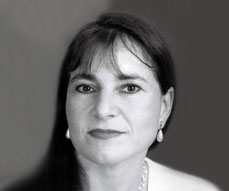Forgiveness, Reconciliation & Self-Healing
“Forgiveness is shifting from the automatic ego reaction—of anger and self-protection, hurting back the other—to a non-reactive conscious response of empathy and compassion,” Dr. Kalayjian explained. Learning to think this way about past trauma is a way of “giving care to yourself and the world, going on with life.”
We can expel many of the myths that exist around forgiveness, including the idea of “forgive and forget” and the beliefs that “forgiving will set the enemy free,” “forgiving will hurt those who died,” “there will be no justice,” and “I will no longer be a victim.” She clarified that her definition of forgiveness means, “not forgiving the act itself, but forgiving the person who was not mindful of what they did.”
“Forgiving is a choice, a shift in perception,” Ultimately, forgiveness can serve as “a source of personal freedom.” I use an integrative model to help guide people into the practice of forgiveness. This model is called the 7-step, Biopsychosocial and Eco-Spiritual Model used in over 40 calamities around the world, as well as in NYC with inner city school children, with LGBT groups in the Bronx, and in monthly empowerment groups for all who want to work through and transform their anger, ancestral pain and humiliation into meaning-making.
Forgiveness and Reconciliation reaches across the spectrum of approaches—socio-psychological, biopsychological, therapeutic, developmental, and spiritual among them—to offer examples of intervention at the individual, community, generational, and national levels.
Forgiveness Lecture at John Jay College of Criminal Justice
"Managers are people who do things right; leaders are people who do the right thing."












